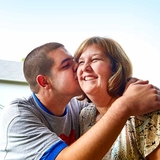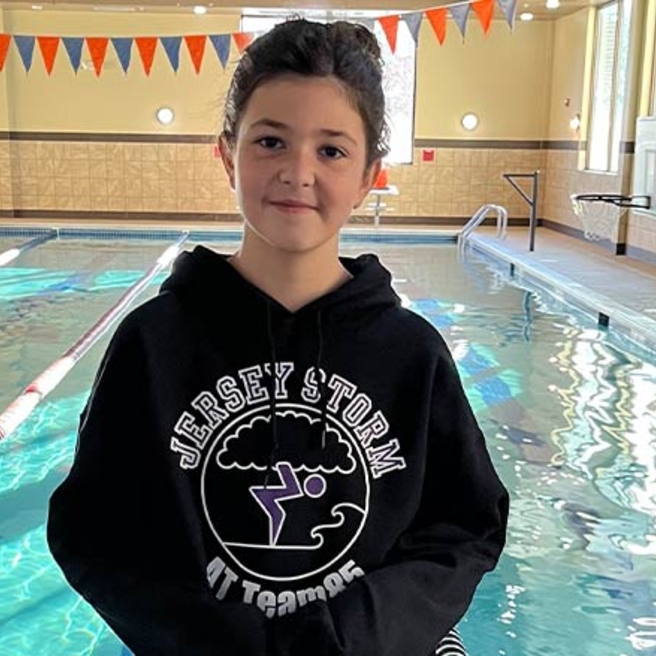Child and Adolescent Psychiatry and Behavioral Sciences

Children of all ages with emotional, behavioral and mental health problems find care in the Department of Child and Adolescent Psychiatry and Behavioral Sciences (DCAPBS) at Children's Hospital of Philadelphia (CHOP), where we believe mental health is health.
The key to appropriate treatment is a proper diagnosis. Our experts will determine the root of your child's problem and identify biological, environmental, psychological and academic factors that contribute to your child's condition before creating a personalized treatment plan.
How we serve you
We have many programs for specific mental and behavioral illness. We also have experts in our hospital to care for hospitalized children, in specialty divisions to help kids and families cope with chronic conditions, and in primary care locations to help identify and treat conditions when they are less severe.
-
Acupuncture Program -
Adolescent Malnutrition Service -
Anxiety Behaviors Clinic (ABC) -
Autism Integrated Care Program -
Behavioral Health Integrated Program -
Center for Pediatric Traumatic Stress -
Center for Management of ADHD -
Child and Adolescent Mood Program (CHAMP) -
Children's Intensive Emotional and Behavioral Services -
Eating Disorder Assessment and Treatment Program -
The Center for Family Care -
First Episode Psychosis (FEP) Program -
Gender and Sexuality Development Program -
Healthy Minds, Healthy Kids Program -
Mindfulness Program -
Mood Disorder Partial Hospitalization Program -
Neurodevelopmental Disorders Consultation Clinic -
Neuropsychology and Assessment Service -
TiPS -
Psychology Services -
Yoga Program -
Young Child Program -
Suicide Prevention, Intervention and Research Center
Conditions we treat
Our experts treat the full spectrum of emotional, behavioral and mental illnesses.
-
Anxiety -
Autism spectrum disorder -
Bipolar disorder in adolescents -
Bulimia nervosa in adolescents -
Children with chronic health conditions -
Conduct disorder -
Depression and anxiety -
Disruptive behavior disorders in children -
Major depression in children -
Mood disorders in children and adolescents -
Movement disorders in children -
Psychosis -
School functioning -
Somatic symptom and related disorders (SSRDs) -
Trauma and stressor-related disorders in children

Meet your team
Our team of psychiatrists, psychologists, child and family therapists, clinical social workers and mental health nurse practitioners share one goal: to help your child or adolescent reach their full potential.

Our locations
We care for inpatients who are also experiencing mental health issues while they are in the Main Hospital. We have outpatient appointments in two locations. Our newest facility is the Behavioral Health and Crisis Center, where children and teens with acute mental or behavioral health needs can find help.

Our research
DCAPBS' research activities span studies of brain cells, genes, brain circuitry, psychosocial influences on behavior or combinations of these. Our goal is to improve children's immediate health and their developmental trajectory as they grow.

Child and Adolescent Psychiatry and Behavioral Sciences resources
We have created resources to help you find answers to your questions about behavioral and mental health and to feel confident with the care you are providing your child.
Events
CHOP Pediatric Psychology Perspectives Webinar Series 2025 - Sept 29 Session
Monday, Sep 29, 2025
CHOP Pediatric Psychology Perspectives Webinar Series 2025 - Oct 27 Session
Monday, Oct 27, 2025

Children’s Mental Health: A National Emergency
Unprecedented demand for treatment of conditions like depression, anxiety and eating disorders, exacerbated by the pandemic, has challenged us to rethink how and where we deliver this essential care.

Join our team
As we grow our clinical services to care for more children, our talented team of providers also needs to grow. Our multidisciplinary team is dedicated to providing children and families with the right care at the right place and at the right time. Learn about some of our available clinical, staff, research and administrative positions.
Professional education opportunities
The Department of Child and Adolescent Psychiatry and Behavioral Sciences offers accredited, specialized training in the biological, behavioral and psychosocial aspects of pediatric care to interns, residents and fellows specializing in child and adolescent psychiatry, psychology and social work. We also offer educational programs and practicum clinical experiences to medical and psychology graduate students from the community as well as continuing medical education for providers.
Your donation changes lives
A gift of any size helps us make lifesaving breakthroughs for children everywhere.


